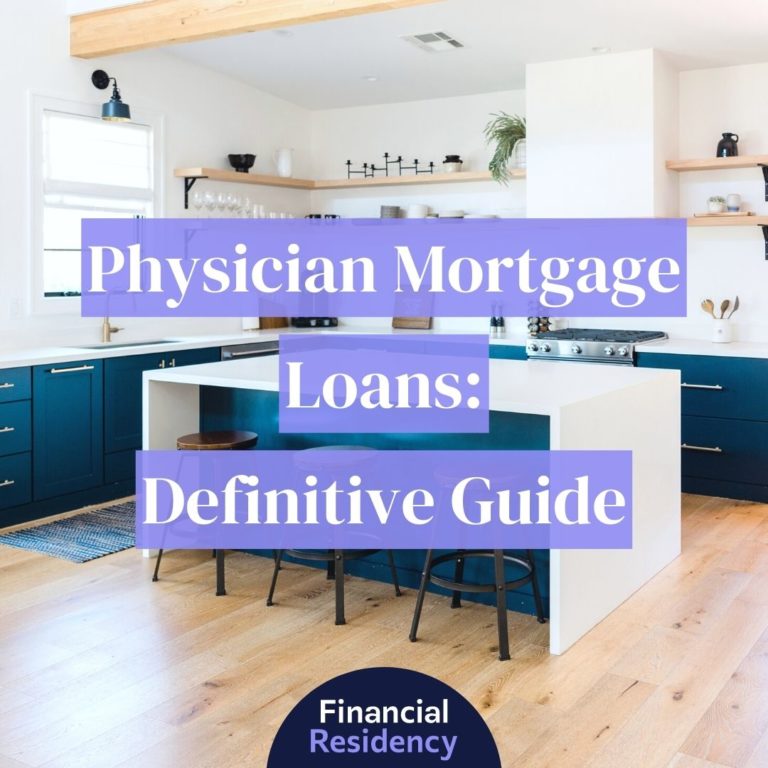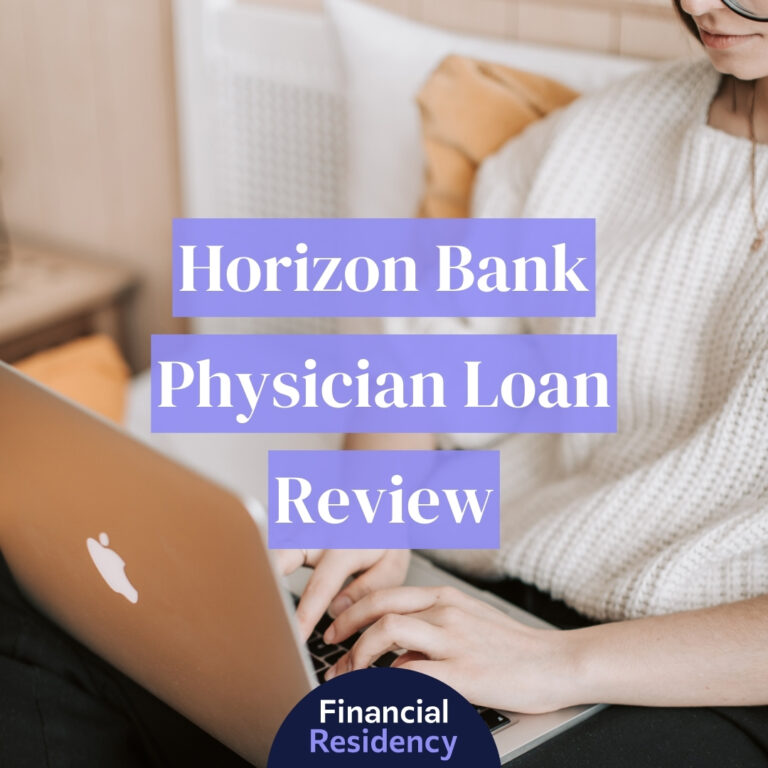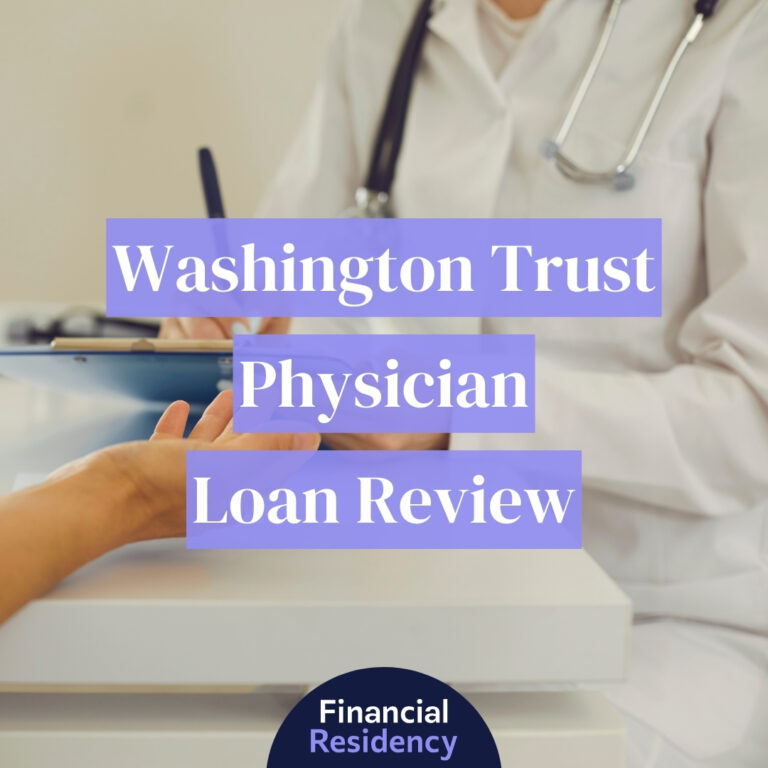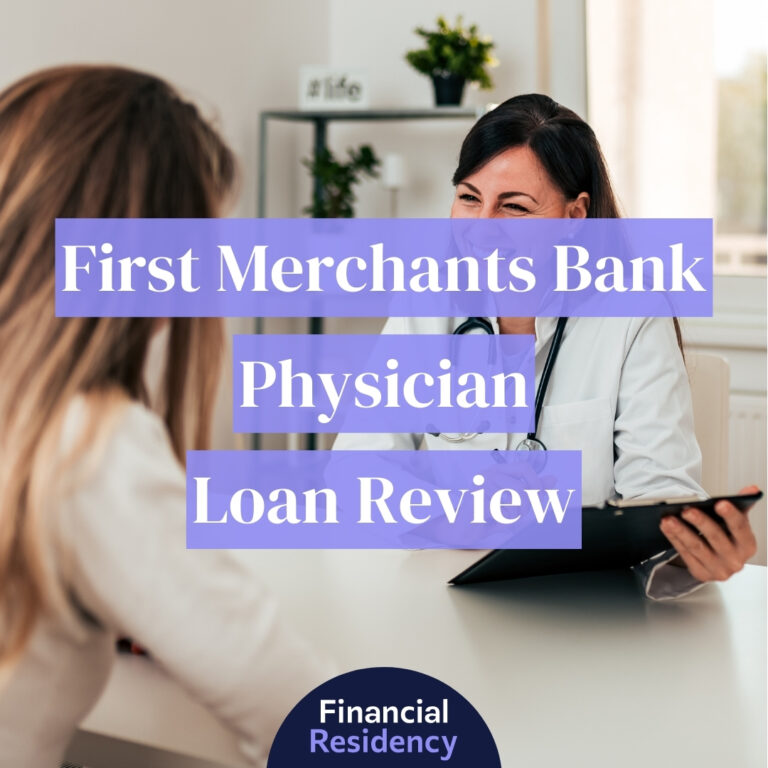A physician loan in Pennsylvania can get you one step closer to your dream of homeownership whether you are a first-time home buyer, an existing homeowner looking to refinance, or a new resident looking to purchase a home before starting your career.
If you’re shopping for a home loan, don’t overlook the special financing options available in Pennsylvania.
We aim to make that step easier by vetting lenders who understand the unique needs of the medical profession. Continue reading to uncover our best physician mortgage lenders in Pennsylvania.
9 Best Pennsylvania Physician Home Loan Lenders
Here are the top physician mortgage loan lenders in PA:
- Citizens Bank
- Evolve Bank & Trust
- First Citizens Bank
- First National Bank
- Fulton Bank
- Huntington Bank
- TD Bank
- Truist Bank
- U.S. Bank
Discover The Best Lenders in Pennsylvania Answer just a few questions about your career, where you're buying, and how much you want to borrow. Our service will then show you the exact programs you're eligible for from vetted physician loan specialists who will guide you through every step of the process – obligation-free!
1. Citizens Bank
- BBB Grade: A+
- JD Power Score: 818
Citizens Bank extends its physician loan program to physicians and dentists with an MD, DO, DDS, or DMD degree, including current residents. The program will provide up to $1.5 million to qualified borrowers without requiring private mortgage insurance (PMI).
Borrowers have the following down payment options:
- 5% of the home’s purchase price on loans up to $850,000
- 10% of the home’s purchase price on loans up to $1 million
- 15% of the home’s purchase price on loans up to $1.5 million
The program even provides financing for new construction for doctors interested in building their dream homes from scratch. Cash-out refinancing options are also available.
Student loan debt deferred for a year or more will not be factored into debt-to-income (DTI) ratio calculations. Borrowers may also use their monthly payment if they’re on an income-driven repayment plan.
Special discounts may be available to Citizens Bank account holders. Borrowers are able to choose from fixed and adjustable-rate mortgage options.
Learn More:
2. Evolve Bank & Trust
- BBB Grade: A+
- JD Power Score: N/A
Evolve Bank & Trust offers an inclusive physician loan program to medical professionals within the first 10 years of their careers. The following medical designations, including residents and fellows, are included:
- Medical doctor (MD)
- Doctor of osteopathic medicine (DO)
- Doctor of dental surgery (DDS)
- Doctor of dental medicine (DMD)
- Nurse practitioner (NP)
- Physician Assistant (PA)
- Veterinarian (DVM)
- Nurse anesthetist (CRNA)
- Chiropractor (DC)
- Optometrist (OD)
- Podiatrist (DPM)
- Pharmacist (RPH/PharmD)
- Clinical Nurse Specialists
Interested homebuyers with a qualifying degree can apply for Evolve Bank and Trust’s Medical Professional Program at no cost. Pre Approval is fully underwritten to ensure a smooth home-buying process.
Evolve Bank & Trust offers several down payment options––all of which waive the PMI requirement.
Loans up to $1 million can be secured without a down payment, but larger loans will require more collateral. Loans up to $1.25 million require a 5%, loans up to $1.5 million require a 10% down payment, and loans up to $2 million require a 15% down payment.
These loans may be used to purchase or refinance detached single-family homes, attached properties with up to 4 units, condominiums, and new construction.
Underwriters will be flexible when calculating the DTI ratio and they’ll consider lower credit scores than competitors. Borrowers who have yet to begin working may use a future-dated employment contract to qualify. A dedicated team of underwriters will consider all applications on an individual basis, which provides a personalized mortgage experience.
Borrowers may also use gift funds or a non-occupant co-signer to apply for the loan. Evolve Bank and Trust requires minimum reserves based on the borrower’s loan amount and credit background.
Learn More:
3. First Citizens Bank
- BBB Grade: B
- JD Power Score: 838
First Citizens Bank offers two competitive mortgage solutions for medical professionals navigating the home-buying process. Both mortgage programs are available to the following medical designations:
- MD
- DM
- DO
- DPO
- DDS
- DMD
- PA
- CRNA
- CRNP
- DPT
Borrowers can choose between a 100% mortgage and an 80/20 Mortgage. With a 100% mortgage, all funds for the purchase or refinance come from one loan and thus only require one monthly payment.
An 80/20 mortgage splits the financing between a traditional mortgage and a home equity line of credit. 80/20 mortgages require two separate loan payments, but this structure can allow borrowers to build equity faster and pay off their homes sooner.
Both mortgage options provide 100% financing. Loans may be used to purchase an existing home, refinance an owned primary residence, or build a new construction home.
Borrowers must have at least a 700 minimum credit score and a valid employment contract or at least three years of tax returns. Borrowers are also required to open a First Citizens Bank account and enroll in AutoPay.
Learn More:
4. First National Bank
- BBB Grade: A+
- JD Power Score: 801
First National Bank opens its physician loan program to physicians, dentists, and veterinarians with the following degrees:
- MD
- DO
- DDS
- DMD
- DVM
Residents are also eligible. In addition to holding an eligible degree, borrowers must have a 700 minimum credit score. Loans may be used to purchase an existing home, refinance, or build a new home.
The program offers 100% financing on loans up to $1.25 million. Loans up to $1.5 million require a 5% down payment and loans up to $2 million require a 10% down payment. Cash-out refinances are available for up to 80% of the homeowners’ equity in the home.
Student loan debt is excluded from debt-to-income calculations. First National Bank offers fixed-rate mortgages with 15 or 30-year terms and hybrid adjustable-rate mortgages.
Learn More:
5. Fulton Bank
- BBB Grade: A+
- JD Power Score: 814
Fulton Bank’s Physicians Mortgage Program is open to physicians, pharmacists, dentists, and veterinarians.
Qualified borrowers may be eligible for 100% financing on loans up to $1.25 million, 95% financing on loans up to $2 million, and 90% financing on loans up to $3 million––which makes it one of the most generous physician loans in Pennsylvania.
Gift funds from immediate family members may be applied to the down payment and minimum cash reserve requirements.
None of these loan amounts require PMI. Borrowers on a budget can save on the upfront costs of homeownership by requesting up to 6% seller-paid closing costs. Borrowers may also save on interest by prepaying the loan early.
Student loans deferred for 12 months or more won’t be factored into credit approval. Borrowers may also close up to 90 days before they start working with proof of an acceptable employment contract.
Borrowers with existing equity in their homes may also refinance. Standard fixed and adjustable-rate mortgage options are available.
Learn More:
6. Huntington Bank
- BBB Grade: A+
- JD Power Score: N/A
Huntington Bank’s Physician Mortgage Loan Program is tailored to meet the complex financial needs of medical professionals with an MD, DO, DVM, DDS, or DMD degree.
All applicants will be required to provide proof of active employment or an employment contract that demonstrates sufficient income.
Huntington Bank requires cash reserves, but the minimum amount varies based on the total loan amount and the borrower’s credit profile.
Borrowers may secure up to $1 million with no money down, but larger loans will require a down payment. Borrowers can put just 5% down on loans up to $1.5 million or 10% down on loans up to $2 million.
Cash-out refinances up to $250,000 are available. All financing is limited to the purchase or refinance of a primary residence.
The program offers fixed and adjustable-rate mortgage products.
Learn More:
7. TD Bank
- BBB Grade: A+
- JD Power Score: 828
TD Bank’s Medical Professional Mortgage Program is open to borrowers within the first 10 years of their careers who also hold a TD Bank account in good standing. The following medical designations are eligible:
- MD
- DO
- DPM
- DMD
- DDS
- OMS
Residents and fellows are also eligible. Private practice owners may qualify with two years of tax returns.
Loans may be used to purchase or refinance a single-family home, condominium, or planned unit development. Select markets may also allow borrowers to purchase properties in a co-op building.
Fixed and adjustable-rate mortgages are available on the following down payment options:
- 0% down on loans up to $1 million
- 5% down on loans up to $1.5 million
- 01% down on loans up to $2 million
The lender doesn’t specify exactly how it calculates DTI ratios, but it will be flexible with student loan debt. Like other physician loan programs, upcoming residents and physicians can qualify with a future-dated employment contract.
Learn More:
8. Truist Bank
- BBB Grade: A+
- JD Power Score: N/A
Truist Bank created its physician loan program with early-career medical professionals in mind, but professionals at different stages in their careers will be eligible for different financing options.
The program will extend up to $2 million to medical professionals with an MD, DO, DPM, DDS, or DMD degree.
Borrowers within 10 years of beginning their careers are eligible for 100% financing, but borrowers who have been practicing for 10–15 years will need to put down at least 10% of the home’s purchase price.
Cash-out refinancing options may be available to borrowers who already own their homes. Cash-out refinances allow homeowners to leverage existing equity to pay off debt, increase their property value, or make other large purchases. Truist allows borrowers to take up to $50,000 cash out if they refinance.
The program is not open to medical professionals who have been practicing for more than 15 years.
Student loan debt isn’t totally excluded, but the lender will be lenient.
Learn More:
9. U.S. Bank
- BBB Grade: A-
- JD Power Score: 820
U.S. Bank will extend up to $2.5 million to medical doctors and doctors of osteopathic medicine, including current residents and fellows. Borrowers must have a 710 minimum credit score to qualify.
PMI isn’t required and the program offers the following down payment options:
- 5% down on loans up to $1 million
- 10% down on loans up to $1.5 million
- 15% down on loans up to $2 million
Borrowers who open a platinum checking account can qualify for a 0.25% lender credit, which can offset closing costs up to $1,000.
Student loan debt is calculated thoughtfully. Borrowers on an income-driven repayment plan will have their monthly payment amount used in DTI calculations and those in deferment will have 2% of their total loan balance used.
Learn More:
How Physician Mortgage Loans Work in Pennsylvania
Physician mortgage loans in Pennsylvania are a specialty loan product designed to help early-career medical professionals purchase or refinance their primary residence. Physicians and other high-income earners dedicate their twenties and thirties to training, networking, and settling into their careers.
Flexibility with Down Payment Requirements
This commitment comes at the expense of working and squirreling away money for a down payment. Physician mortgage lenders are willing to be flexible with income history and down payment requirements to eliminate these barriers to homeownership.
Flexibility with Employment Contracts
Because mortgage lenders understand that high income is a trade-off for work history, they’re often willing to accept future-dated employment contracts that guarantee a start date within 60–90 days of closing. Employment contracts must specify a base salary to be accepted.
Flexibility with Debt-to-Income Ratio
Student loan debt is another major barrier to loan approval for early-career medical professionals. With medical school debt often exceeding $200,000, it can be difficult for physicians who have not yet reached their full earning potential to get approved for a loan.
Physician loan lenders are often willing to exclude or be lenient on student loan debt so doctors are more likely to be approved.
Deferred student loans may be completely excluded or a fraction of the total loan amount may be used. Income-driven repayment plans may also be used in debt-to-income calculations.
Lenders are willing to be flexible in this way because physicians are statistically less likely to default on their loans and more likely to access student loan forgiveness by working in the non-profit sector.
High-income earners are also more likely to bring business to banks by routing their direct deposit, savings, and other accounts to the institution over the course of their careers.
Access to Larger Loan Limits
Physician loans also give doctors access to larger sums of money than conventional loans and government-backed mortgages. In Pennsylvania, any loan exceeding $726,200 is considered a jumbo loan.
Conforming loans are limited to this cap, but physician loans can extend millions of dollars to qualified borrowers. FHA loans have even lower limits. In Pennsylvania, the FHA loan limit is set by county, but $472,030–$529,000 is the maximum we’ve seen most often in our research.
No Private Mortgage Insurance
Even though physician loan programs don’t require a 20% down payment, borrowers also aren’t required to make monthly PMI payments. Private mortgage insurance is typically 0.58–1.86% of the original loan amount per year.
For a $2 million mortgage loan, this fee can amount to $11,600–$37,200 by the end of the loan term. Waiving this fee saves physicians this amount, which can allow them to invest more money into their businesses, retirement, and the stock market.
Higher Credit Score Required
While physician loans are more lenient in many respects, there are a few strict requirements. For example, lenders tend to require a minimum credit score of around 700.
Some lenders may require a higher credit score for 100% financing, while others may be more willing to work with lower credit scores if borrowers can put more money down.
Limited to Primary Residence
Unlike conventional mortgages, physician home loans have property restrictions. In general, physician mortgage loans may only be used to purchase or refinance a primary residence–investment properties, second homes, and rentals are typically excluded.
There also may be a limited list of eligible properties. You’ll need to read the fine print of any loan agreement or discuss your options with a loan officer, but 1-2 unit properties, single-family homes, condominiums, and townhouses are typically included. Some programs may even extend construction loans for borrowers interested in building a new home.
Physician loans may also be used to refinance a property a borrower already owns. Rate/term refinances allow homeowners to access a lower interest rate or reduce their monthly payment and cash-out refinances allow homeowners to leverage their home equity to make home improvements, pay off debt, or use cash for other important purchases.
Pros and Cons
Considering the pros and cons of any loan program is an essential part of doing your due diligence on your path to homeownership.
We’ve prepared a few notable advantages and drawbacks any medical professional should consider when shopping for the best physician loans in Pennsylvania.
Pros
- Flexible underwriting guidelines: Many doctor mortgage loan programs are flexible when calculating debt-to-income ratios––often providing special conditions for student loan debt.
- Higher loan amounts than other mortgage programs: Physician mortgage lenders extend more generous sums of money to medical professionals due to their increased likelihood of becoming high-income earners throughout their careers.
- No PMI: Conventional loans charge private mortgage insurance when borrowers have less than 20% equity in their homes. Physician home loans waive this requirement, regardless of your down payment amount.
- Low down payment options: Physician loan programs lower the financial burden of home purchases by providing 85–100% financing for qualified borrowers.
- Can be used to refinance: Doctor loan programs aren’t just available for the purchase of a new home; they can also be used to rate/term or cash-out refinance a property you already own. Refinancing provides access to lower interest rates and can reduce monthly payments.
- Open to interns, residents, and fellows: Physician home loans can help doctors in training purchase their dream homes before they reach their full earning potential.
- Buy with an employment contract: Residents and new physicians often have to relocate to continue their careers. Doctor mortgage loans make relocating easier by allowing medical professionals to purchase a home with an employment contract before they start working.
Cons
- Age limits: Physician mortgage loans are often limited to medical professionals within the first 10 years of their careers, but there are exceptions, so it’s a good idea to shop around.
- Higher credit score requirements: Doctor loans typically require at least a 700 minimum credit score, but some lenders will work with lower scores if the borrower can put down a larger down payment.
- Adjustable-rate mortgages: Physician loans are often structured as adjustable-rate mortgages, which can make monthly payments unpredictable over the loan term.
- Primary residence restrictions: Doctor mortgages are typically reserved for the purchase or refinancing of a primary residence. Investment properties and rentals are rarely included.
- Easy to borrow outside your means: Because physician loans aren’t held to conforming loan limits, it can be easy to overestimate what you can reasonably afford to spend on monthly payments.
- Inconsistent eligibility requirements: Doctor mortgages aren’t a standardized product, so every lender will accept different medical professionals. Medical doctors and dentists are often included, but other programs will include physician assistants and veterinarians.
Frequently Asked Questions
How do doctors get loans?
Doctors can get loans by connecting with a loan officer, mortgage broker, or financial institution. Because doctors are high-income earners, lenders are often willing to be more flexible with the qualifying terms.
The loan approval process will require income verification, documents that prove your identity, higher education diplomas, and other information to determine your eligibility, loan amount, and interest rate.
Contact a trusted financial representative to find out more about physician lines of credit, doctor mortgage loans, and other products that can help you invest in real estate, grow your private practice, or leverage existing equity as collateral for other endeavors.
What is the average monthly payment for a physician loan?
The average monthly payment for a physician loan depends on the loan amount, interest rate, and down payment. You can estimate your monthly payment by using a mortgage calculator or contacting a lender to get pre-approved.
Do doctors get better mortgage rates?
No, doctors don’t get better mortgage rates, but their higher education and significant income provide access to loan programs that operate outside the confines of conventional mortgages. Physician loans have more flexible qualifying terms, but they often have higher interest rates.
Shopping around can ensure you find a competitive mortgage rate for your home purchase or refinance.
Do doctors get loans easily?
Yes, doctors can get loans easily if they meet the qualifying terms. Compared to conventional loans, physician mortgages have more lenient requirements. These programs will often accept future-dated employment contracts as proof of earning potential, be flexible on student loans when calculating DTI ratios, and waive PMI, which can save borrowers hundreds on their monthly payments.
Who is a Physician Loan in Pennsylvania Best For?
Sometimes it takes seeing example scenarios of people who stand to benefit the most from physician loans in Pennsylvania. Consider the following examples if you are still on the fence about whether a physician loan is the right choice for your long-term financial goals and career aspirations.
1. Medical professionals who play the stock market
Investing is the key to growing wealth, but it’s not without risk and financial sacrifice on the front end. If you’re a medical professional looking to maximize your gains in the stock market, putting money towards a down payment can feel like you’re diverting money away from those goals.
A physician mortgage loan can make it possible for medical professionals to continue putting their funds toward the stock market while still building equity by purchasing a new home.
2. Private practice owners
Similar to stock market investments, business endeavors require upfront finances to be successful. When physicians, dentists, and veterinarians are setting up and expanding their private practices, it can be advantageous to keep money that would otherwise go to a down payment within the business.
Physician loans allow private practices to grow their businesses while pursuing homeownership in an affordable manner.
3. Residents relocating to start a new job
Residents and attending physicians often have to relocate to Pennsylvania to continue their medical careers. Purchasing a home can provide stability, equity, and a comfortable place to grow a family.
Residents and early-career physicians have spent the better part of a decade making sacrifices to pursue a career in medicine while their peers have been on the job market and building their resumes.
Physician loans extend financing to medical professionals without requiring an extensive income history. Borrowers can qualify for a loan with a signed employment contract that starts within 60–90 days of closing, which can allow relocating residents to settle on their homes before starting their new jobs.
4. Early-career medical professionals with significant student loan debt
Student loan debt can skew the debt-to-income ratio for medical professionals at the beginning of their careers. Many conventional loan programs require a DTI ratio of 43% or less to qualify for financing, but physician loan programs may work with ratios of up to 50% in some cases.
Physician loan underwriters will also be flexible by excluding or using a fraction of the total student loan balance to calculate DTI. Deferred student loans are the most likely to be excluded, but some lenders will use the actual monthly payment for borrowers on an income-driven repayment plan.
5. Healthcare professionals with excellent credit
High credit score holders working in healthcare may want to shop around for the best interest rate and loan terms. It can be helpful to get pre-approved by several different lenders and programs to see which program offers the most competitive terms for your unique situation.
Should You Get a Physician Loan in PA?
More than 56,000 doctors choose to practice in the Keystone State, making it one of the U.S. top states for practicing physicians.
It serves Pennsylvania well to have a thriving population of physicians because it’s also one of the most populated states in the country with more than 12,800,000 residents. It’s also known for outstanding options in healthcare and hospitals, which is one reason it continues to attract the nation’s top physicians.
Living in Pennsylvania means you’ll have your choice of any kind of lifestyle you can imagine– whether you’re looking for a big city, sprawling suburb, or quiet country living, Pennsylvania has a desirable location for you. A physician mortgage loan can make it possible for you to live wherever you and your family choose.
You can take the exciting step of settling down in Pennsylvania by taking a look at the offerings of our preferred lenders. We recommend you reflect honestly on your long-term financial goals, earning potential, and challenges you’re likely to face on your path to homeownership.
Moving to a Different State?
Click on the state you are moving to and get the best physician mortgage loan lenders in that state:
Learn more about physician home loans.




